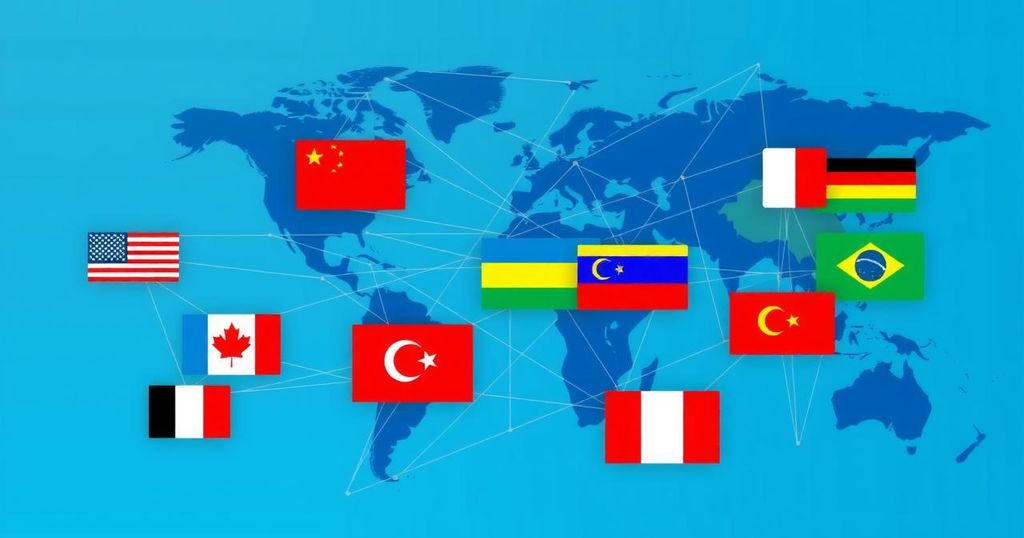White House Confirms Trump’s Plans for Reciprocal Tariffs on “Liberation Day”

White House spokesperson Karoline Leavitt announced that President Trump’s “Liberation Day” tariffs will not have exemptions on reciprocal tariffs. She highlighted unfair foreign tariffs that hinder U.S. exports and emphasized the need for reciprocity. The administration also released a report on foreign trade barriers, asserting that President Trump’s policies aim to protect American businesses.
In a recent statement, White House spokesperson Karoline Leavitt confirmed that United States President Donald Trump will not be offering any exemptions on reciprocal tariffs as he announces his “Liberation Day” tariff plans on April 2. The announcement coincides with the administration’s ongoing critique of what it deems “unfair trade practices” imposed by foreign nations that adversely affect American businesses.
Ms. Leavitt presented data indicating high tariffs imposed on American products by various countries, specifically highlighting the 700% tariff from Japan on rice, a 50% tariff from the European Union on dairy products, and a 100% tariff from India on agricultural goods. Such tariffs have severely constrained American exports, leading to lost jobs and business closures over the years.
The Trump administration’s aim with these reciprocal tariffs is to balance out the advantages foreign nations have created through higher tariffs and non-tariff barriers. Ms. Leavitt emphasized that Washington is committed to addressing these discrepancies and restoring fairness in trade, stating, “It’s time for reciprocity.”
In parallel to the tariff announcements, the Trump administration released a comprehensive report detailing foreign trade barriers that complicate U.S. exports. The report addresses both tariff and non-tariff barriers that have historically hindered American businesses, such as restrictive food safety regulations and complicated import requirements.
U.S. Trade Representative Jamieson Greer pointed out that no prior president has recognized the extensive trade barriers affecting American exporters to the extent that President Trump has. The report outlines key issues, including bans and regulation delays that obstruct U.S. products in global markets, particularly in the EU and Canada.
In summary, the upcoming reciprocal tariffs announced by President Trump are designed to address perceived trade imbalances caused by high tariffs from foreign nations. The Trump administration is firm in its belief that these measures will restore fairness and support American industries, while the accompanying report emphasizes ongoing foreign trade barriers that complicate U.S. exports. The aim is to create a more equitable trading environment for American businesses and workers.
Original Source: www.ndtv.com






